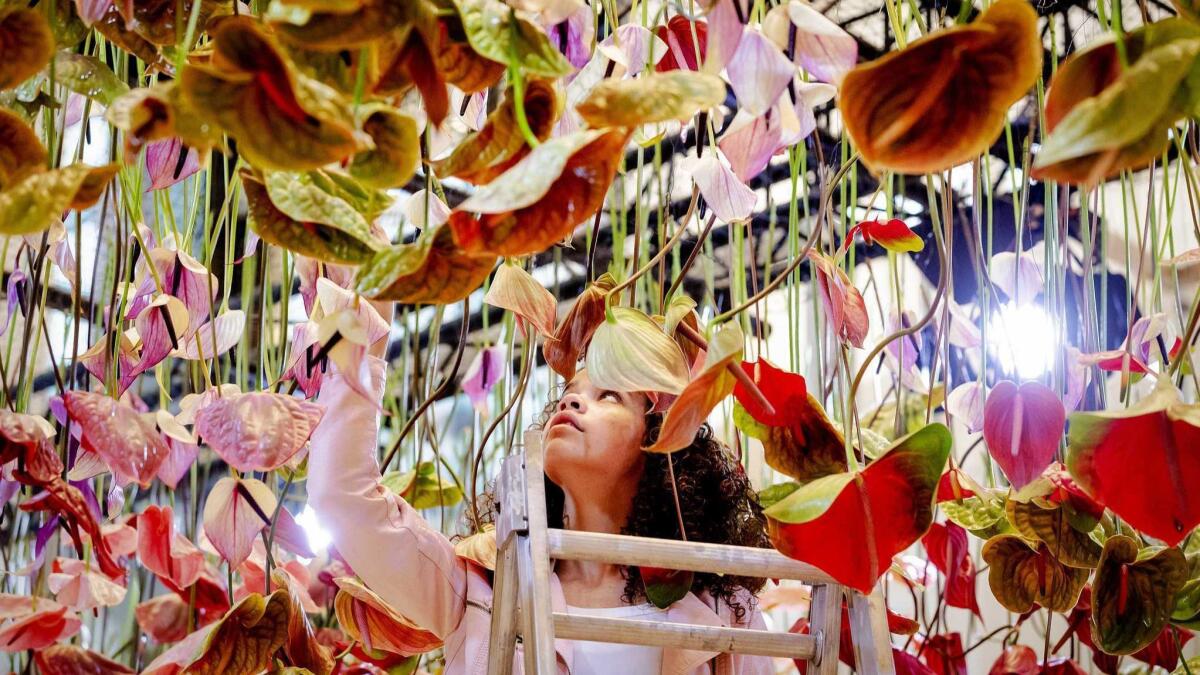Op-Ed: Happy ‘Other’ Mother’s Day

- Share via
My mother died when I was 16, so Mother’s Day always fills me with wistfulness and a bit of dread. It forces me to relive long-ago grief as I reflect on what a kind and generous mother I lost more than 20 years ago. But I’ve found a way to inject more happiness into the holiday by expanding my definition of what it means to be a mother. Now I celebrate all the “other mothers” in my life, the many women who caringly stepped in over the years to help smooth my path to adulthood.
Sociologist Patricia Hill Collins describes “other mothers” as women who support biological mothers and informally share mothering responsibilities with them. Such an arrangement — usually unpaid or bartered — has long been central to the experience of African American motherhood.
The notion also has been a mainstay among working-class, religious and immigrant communities, except for one big difference — a biological connection.
In my own life, I’ve benefited from the care of other mothers, even when my mother was alive.
Grandmothers often share child-rearing duties and ease the childcare burden of working parents, a role that has only been increasing, according to Madonna Harrington Meyer, a sociologist who wrote “Grandmothers at Work.” And when the Obamas moved into the White House, Michelle’s mother came along for the first family’s eight-year stay. Her mother, Marian Shields Robinson, later said she felt it was “going to be a very hard life” for the parents and she was worried about her granddaughters.
In my own life, I’ve benefited from the care of other mothers, even when my mother was alive. These other women just happened to be my teachers, too. From my earliest elementary school days through the years I studied for my doctorate, teachers helped me academically, mentored me professionally — and served as my nurturing anchors.
A dear college professor supported my path to graduate school as the first in my family to go to college. She saw something in me I didn’t see in myself and encouraged me to take advanced classes, patiently answering my questions, and showing me glimpses of her life as a professor. She also supplied me with subway fare, and made sure I had food to eat and books to nourish my physical and emotional health. When I earned my doctorate 16 years later, she celebrated at my dissertation defense party.
My three younger sisters were between 10 and 13 when my mother died, and we came to depend on our network of other mothers. Mothers of friends took my sisters on weekend outings. When I had to be at school early and my father had already left for work, we leaned on the neighborhood women who worked at the bagel store near our house to keep an eye on my sisters for an hour in the mornings until their school bus arrived.
As adults, my sisters continue to embrace the concept of other mothers. My sister, Joelle, still keeps in touch with her other mother, a childhood friend’s mom. Their relationship inspired Joelle, who has four young children, to pay it forward. She is a part of a community of other mothers who are always helping each other out, and she once took in a neighbor’s 10-year-old daughter for a time because both the single mother and daughter needed a break from each other.
Similar child-keeping practices are common in poorer communities, according to research by Carol Stack, a sociologist.
I, too, aspire to be an other mother. My personal history plays a part in this choice but so do concerns about meeting what seem like the impossibly high expectations of modern motherhood, a cultural pressure one sociologist calls “intensive mothering” — the near-total devotion to child-rearing and family life.
Enter the Fray: First takes on the news of the minute from L.A. Times Opinion »
Yet women like me who choose not to have children still face assumptions that we are somehow selfish. But I see it far differently, as a way to build meaningful relationships with both children and their mothers, as a way to help them soar. As an aunt, sister, teacher, friend and community member, I can be a member of a vast family.
As a college professor, I’ve tried to show my students the same empathy and support my mentors have shown me, whether that means pointing them to various income-based student loan repayment programs after graduation or offering a sympathetic ear during a personal crisis, such as a death in the family or a health problem. I would have less time to devote to this if I had children at home.
Before Sylvia Bloom died last year at 96, the legal secretary secretly amassed a fortune while living a modest life. She left behind more than $8 million and bequeathed the bulk of it to the Henry Street Settlement, which helps disadvantaged students in New York. She never had children, but her donation will support young people for generations to come. She will be the “other grandmother” they never met.
That’s the kind of woman I aspire to be. Happy Other Mother’s Day to all you kindred spirits out there. You — and those you’ve nurtured along the way — know who you are.
Stacy Torres is an assistant professor of sociology at UC San Francisco.
More to Read
A cure for the common opinion
Get thought-provoking perspectives with our weekly newsletter.
You may occasionally receive promotional content from the Los Angeles Times.









